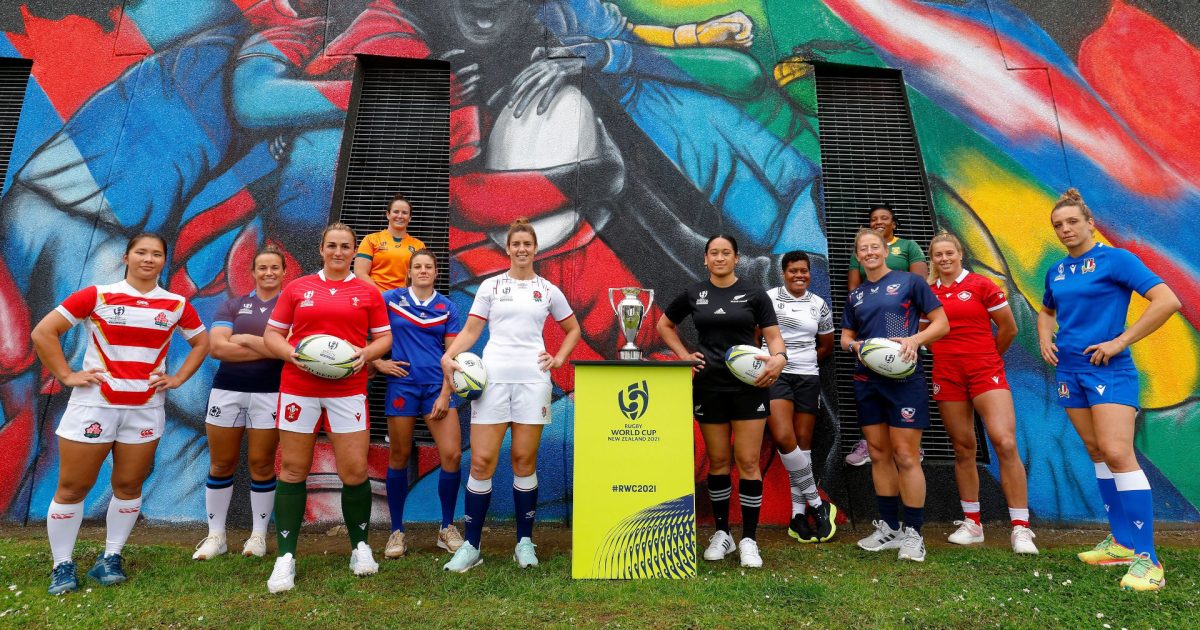World Rugby to work in “active partnership” with unions to raise investment and standards

World Rugby has committed to taking a more proactive approach to generating investment to support the growth of the women’s game as it bids to close the competition gap in the next decade.
On Tuesday, the governing body launched the Accelerate framework, a new targeted investment approach that it hopes will “supercharge the development of women’s rugby on and off the field”.
Focusing initially on 20 unions capable of qualifying for WXV and Rugby World Cup 2025, World Rugby’s aim is to develop partnerships within those nations to help drive investment and raise standards in the ten years leading up to RWC 2033 in the USA.
A pilot project in Australia has already generated AU$2 million in government funding and enabled the Rugby World Cup 2027 and 2029 hosts to increase support for its Super W competition and offer 35 part-time contracts to Wallaroos players.
“Accelerate is a plan that increases our investment and the way we work in active partnership with up to 20 unions,” World Rugby Chief of Women’s Rugby Sally Horrox said at SportsPro Live 2023.
“That’s not just about the pinnacle of the game because what we believe we need to do is build from that base.
“Because we haven’t got the depth of talent, we haven’t got the pathways, we haven’t got the domestic competitions, cross-border competitions globally, that will allow us to thrive as a sport.
“We believe that we need to work with our union partners to increase collective investment. That’s government, that’s brands, that’s media partners, that’s us and resources, which means people on the ground to fast-track the development of the sport in those countries.”
Key to the success of the Accelerate programme, Horrox says, will be “specifically identifying the things that are going to make the most difference” in each of the participating unions.
Referencing the initial pilot programme, Horrox added: “Raising standards in the Super W league, making sure that there are full-time coaches, strength and conditioning staff, physiotherapists, we are actively engaged in making that happen in Australia.
“We will match-fund appointments, we will take some risk and reward on that on the ground. We will put workforce out into these countries.
“What we can’t be is a substitute for local investment, our partners have to want to do it with us. But it’s about [identifying] what are the three transformational initiatives in each country that are going to make the difference, and then we can get behind them and we plan them.”
Following on from the pilot project in Australia, USA Rugby has been offered support as the country builds towards hosting the Los Angeles 2028 Olympic Games as well as the Rugby World Cup in 2031 and 2033.
World Rugby will then begin to work with other unions it has identified in the build-up to RWC 2025 in England.
Participating nations will need to show a willingness to generate and match investment, while reaching minimum standards in terms of leadership and governance.
Although 20 have been identified ahead of the programme’s launch, that number will remain “quite fluid” as Horrox acknowledges the governing body cannot ignore member unions outside of that initial group.
“We’ve got to be strategic and targeted, so it is about casting the net pretty widely,” World Rugby CEO Alan Gilpin said.
“Do we want the women’s game, in terms of international competitiveness in ten years’ time, to mirror the men’s game? No, we want more depth.
“If we’re going to create that competitive depth, we’ve got to give all those nations a pathway to that.
“So, the regional competitions very clearly having a pathway to WXV, which they have, and then once you’re in WXV in that year in a pool of six, you’re playing against the right type of opposition.
“We should start to address those blowout results because actually what the teams need is to play the teams right around them in terms of capability, that’s how we’re going to see improvement.”













































































